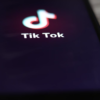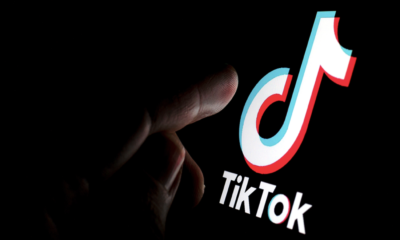Social Media
India strongly rejects criticism of new IT rules by UN special rapporteurs
India has dismissed criticism of its new IT rules relating to social media by three UN special rapporteurs on rights issues, saying the country’s democratic credentials are well recognised and the right to freedom of speech and expression is guaranteed under its Constitution.
“The concerns alleging potential implications for freedom of expression that the new IT Rules will entail are highly misplaced,” India’s permanent mission to the UN in Geneva said in a strongly worded response, asserting that the rules are “designed to empower ordinary users” of social media.
The enactment of these rules had become necessary following widespread concerns about increasing instances of abuse of social media and digital platforms, it said.
The Upper House of Parliament had repeatedly asked the government to strengthen the legal framework and make the social media platforms accountable under the Indian laws and the rules were framed after extensive deliberations, it noted.
Also, the Supreme Court of India in two judgements had directed it to frame necessary guidelines to eliminate child pornography and related contents in online platforms and also said that it was imperative to frame proper regime to find out the persons, institutions, and bodies who were the originators of such content messages.
“The Permanent Mission of India would also like to highlight that India’s democratic credentials are well recognised. The right to freedom of speech and expression is guaranteed under the Indian Constitution,” it said in a communication to the rapporteurs.
“The independent judiciary and a robust media are part of India’s democratic structure,” it added.
The Special Rapporteur on the promotion and protection of the right to freedom of opinion and expression, the Special Rapporteur on the rights to freedom of peaceful assembly and of association and the Special Rapporteur on the right to privacy had expressed concerns over India’s IT (Intermediary Guidelines and Digital Media Ethics Code) Rules, 2021.
“The concern that the rules may be misused deliberately to make a large number of complaints so as to overwhelm the grievance redressal mechanisms created by social media platforms is also misplaced, exaggerated and disingenuous and shows lack of willingness to address the grievances of the users of these media platforms while using their data to earn revenues,” the Indian mission said in its response.
The Rapporteurs said the rules in their current form do not conform with international human rights norms and pressed for a detailed review.
“We would like to recall that restrictions to freedom of expression must never be invoked as a justification for the muzzling of any advocacy of multiparty democracy, democratic tenets and human rights,” the Rapporteurs said in a communication.
Also Read: Government open to new measures to boost Indian economy: CEA
Under the new rules, social media platforms like Facebook, WhatsApp and Twitter are required to appoint nodal officers and create mechanisms to remove offending posts and messages.
US tech giant Twitter has been engaged in a tussle with the Indian authorities over the new rules. The government accused the company of failing to comply with the new rules which came into force late last month.
The Indian mission also said that under the new rules, the social media companies are required to appoint India-based grievance redressal officers, compliance officers and nodal officers to address complaints of the users.
“The enactment of new IT rules had become necessary due to widespread concerns about issues relating to increased instances of abuse of social media and digital platforms, including inducement for recruitment of terrorists, circulation of obscene content, the spread of disharmony, financial frauds, incitement of violence, public order etc,” it said.
The mission said that prior to the notification of the rules, the users had no opportunity to file a complaint in case of any misuse or abuse of social media platforms.
Referring to a verdict by the Supreme Court, it said the government of India fully recognises and respects the right of privacy.
It said the new IT rules seek information only on a message that is already in circulation that resulted in an offence, asserting that they have been framed in exercise of the statutory powers of the IT Act, fully taking into account the principles of reasonableness and proportionality.
“The rules seek to empower the users by mandating the intermediaries, including social media intermediaries, to establish a grievance redressal mechanism for receiving and resolving complaints from the users or victims,” the mission said.
“Intermediaries shall appoint a Grievance Officer to deal with such complaints and share the name and contact details of such officer,” it added.
The Ministry of Electronics and Information Technology (MeitY) also issued a statement on India’s response.







































